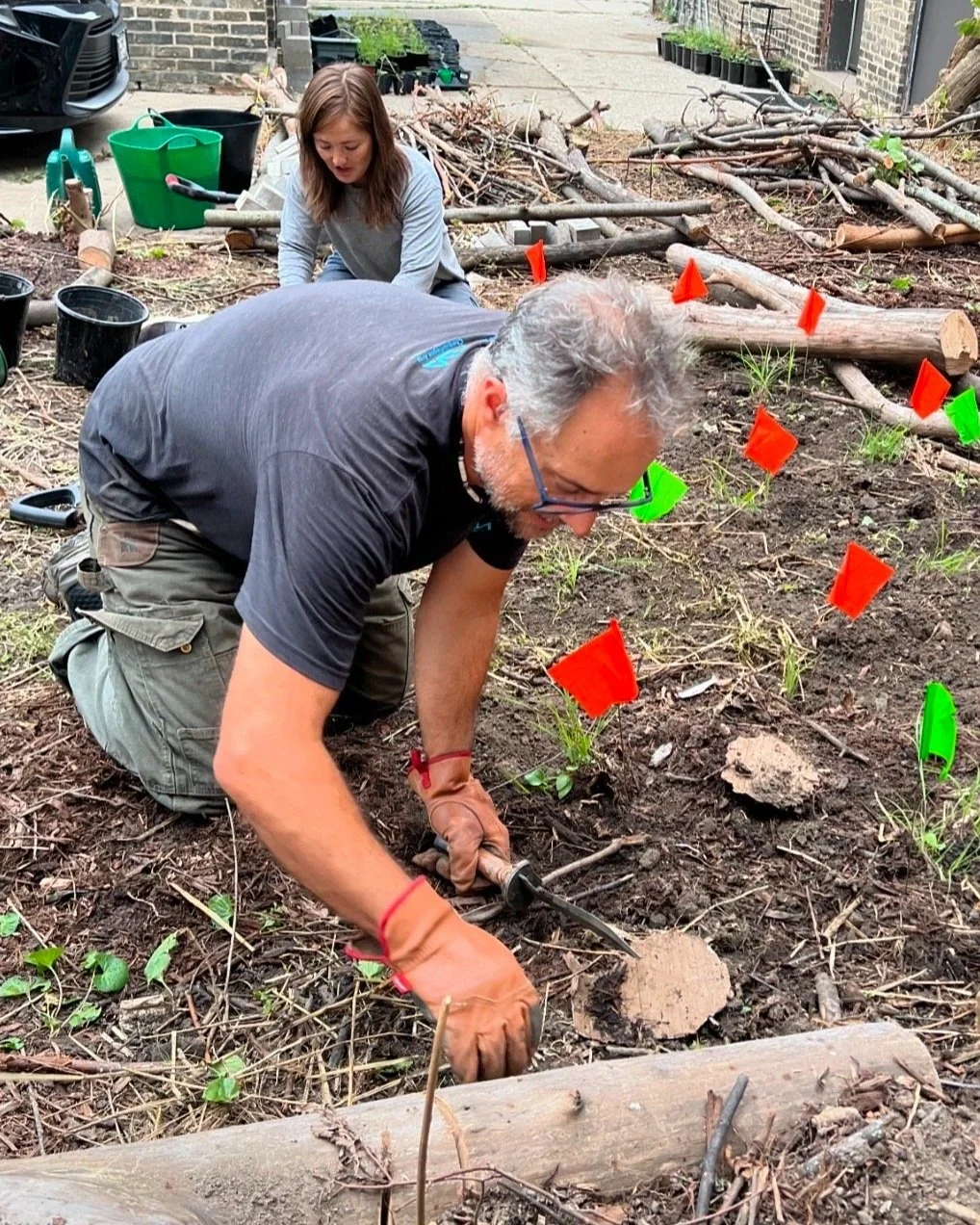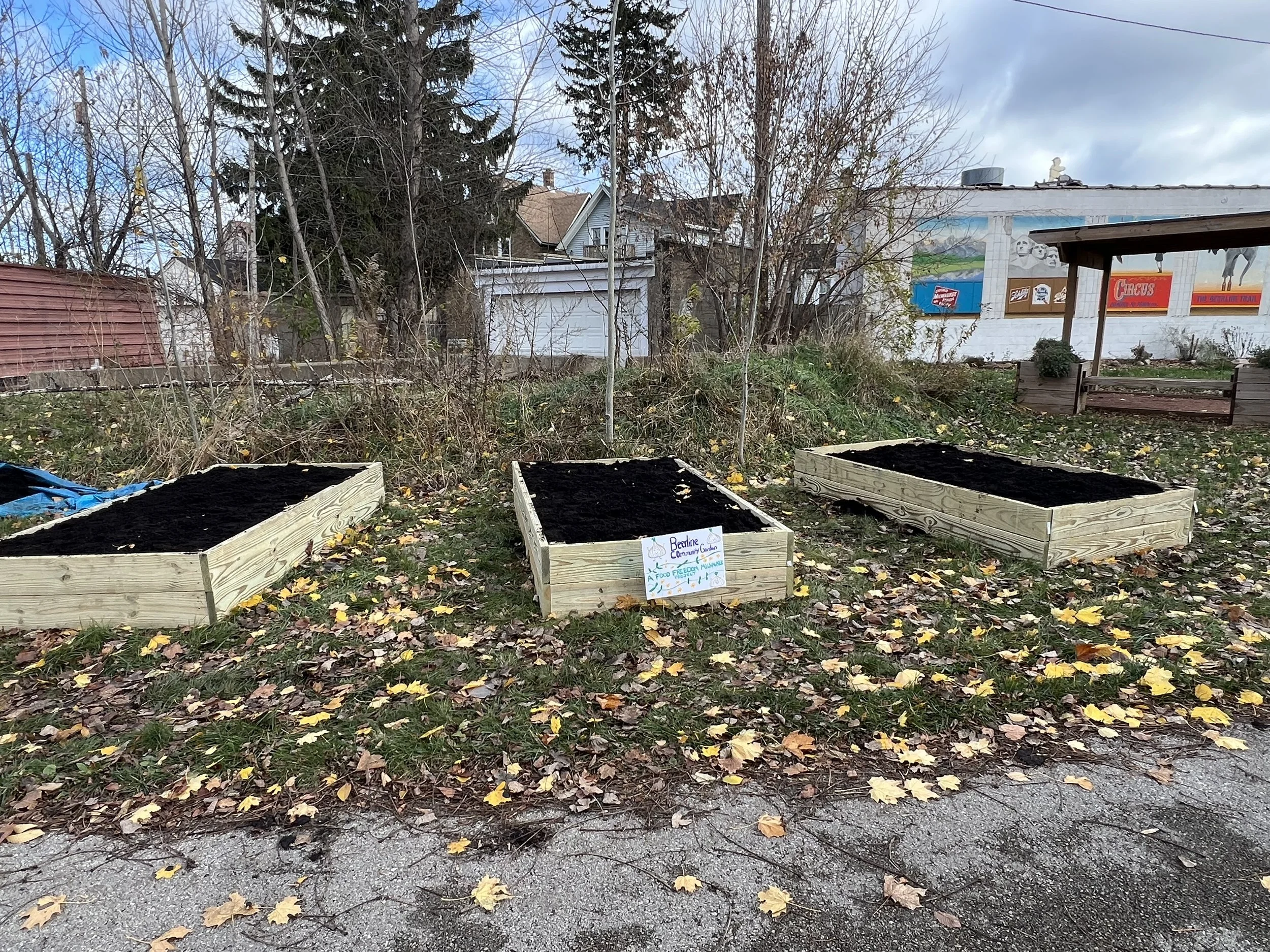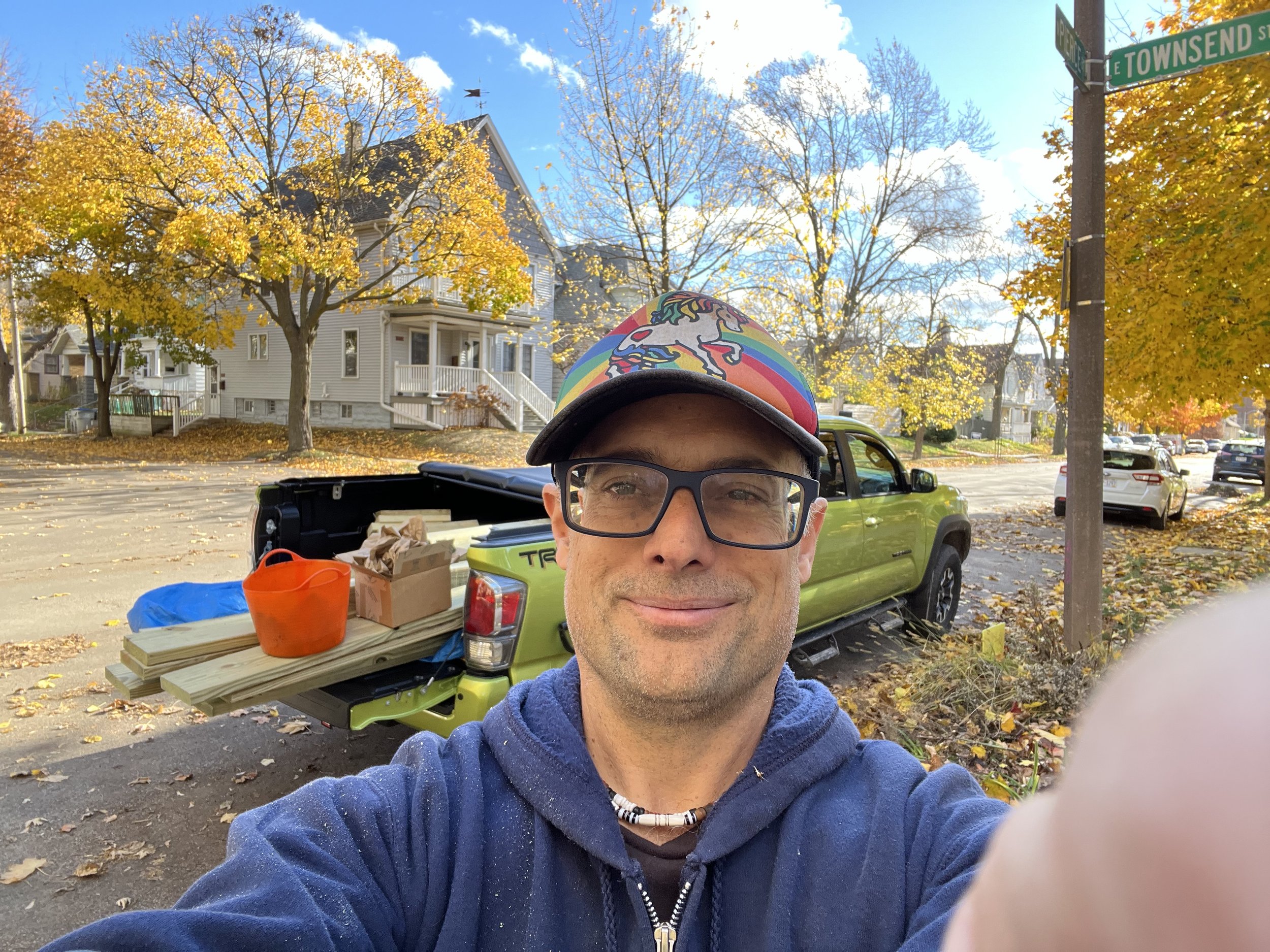Who We Are
Food Freedom Milwaukee is dedicated to engaging people in building their own access to healthy food and healthy natural ecosystems in their neighborhoods.
We partner with neighborhood groups and schools to build community gardens, which we help to build and maintain, where children can learn to eat healthy and to develop their ability to realize food security and participate in the expanding and increasingly critical sustainability economy.
Food Freedom Milwaukee provides financial, technical, and material support for partners and neighbors, ranging from installing free native pocket prairies in yards to helping a school or neighborhood start, maintain or expand a community garden.
We rely on volunteers and partners to realize its mission. We are currently partnering with multiple local, national and international environmental and food system justice organizations including the Federal USDA People's Garden Initiative, Milwaukee's We Got This! Youth Gardening Program, and the Riverworks Beerline Development plan.
why this?
why now?
Food sovereignty is a basic human right that our federal food policy denies to families with low income.
This negatively affects all of us, but can be particularly harmful in low income communities when combined with other social factors. The devastating impacts of living in malnutrition deserts, combined with living in ecologically dead and often toxic natural environments, pose significant risks to our health and wellbeing.
So, while access to healthy food is a right, it can’t be solved within a system that produces and maintains nutritional inequality.
Luckily, alternatives exist. We can reclaim our ability to produce our own food and transform our public spaces!
What we believe
Our shared values, goals, and convictions as an organization
mission
To create hyper-local food systems that empower individuals and neighborhoods to feed themselves and restore personal and ecological health.
vision
A world where any person of any means has the freedom and knowledge to grow and feed themselves nutritious food that was grown right in their neighborhood.
values
Justice
We believe food sovereignty is a basic human right.
Empowerment
We believe that the power to feed yourself can restore confidence and transform lives.
Independence
We believe people should not have to rely on our current food systems and supply chain for their food and health.
Connectedness
We believe that the health of people and the health of our community land are interconnected and that one cannot truly exist without the other.
Community
We believe that transforming our land and health will take a team effort and that hyper-local agriculture is a way we can take care of one another.
meet our founder
Food Freedom Milwaukee is led by its founder Quinn Wilder, lifelong Milwaukeean and Riverwest resident, Foster/ Adoptive Parent, Father of two wonderful children, Youth and Social Worker, and University of Wisconsin-Milwaukee Educator.
Background info from Quinn:
“Over the last year, as I began my trial run at being temporarily semi-retired and a life-long career of teaching child welfare and youth programming for 28 years at UW-Milwaukee, my focus on community gardening and food security intensified. I joined a food cooperative board, became a volunteer orchard manager and garden camp director and counselor at a neighborhood food gardening nonprofit, and studied gardening, food policy, and native plant restoration voraciously. And then I started Food Freedom Milwaukee. It’s a small nonprofit with big goals: To transform our urban space from ecogically dead zones into thriving regenerative, food and health producing nature-scapes. Because as I studied and explored and discussed issues of food insecurity and ecological destruction, I came to understand that while access to healthy food is a right, it can’t be solved without challenging the system that produced and maintains nutritional inequality. In fact, we can’t have healthy food if we don’t have sufficient space for native plants and insects and healthy soil.”





